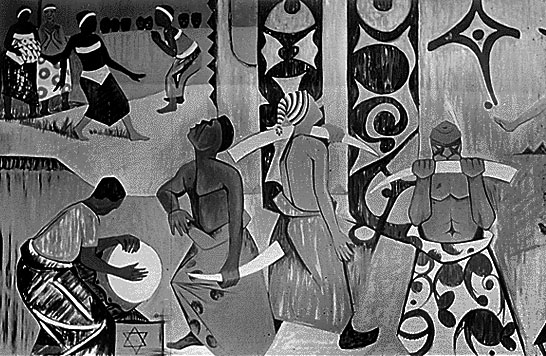
Hello everyone! For today’s post, we’re diving into the final half of Chinua Achebe’s masterpiece, Things Fall Apart, using a postcolonial lens. We’ll examine the complex layers of colonial oppression, the struggle for post-colonial identity, and the intricate ways in which cultural difference shapes individual and societal perceptions.
From the onset, “Things Fall Apart” paints a vivid image of colonial oppression. The title itself mirrors the destructive impact of colonialism on the Igbo society. The Igbo community, once cohesive and thriving, experiences disintegration under colonial rule. As Achebe shows, colonialism wasn’t just a political intrusion, it ripped apart the cultural fabric, distorting traditional practices, beliefs, and identities. The protagonist Okonkwo’s suicide signifies the irreversible breakdown of the traditional order (Achebe, 209).
The text provides intriguing insights into the struggle of post-colonial identity. Okonkwo’s struggle, especially, is symbolic of the larger crisis of identity faced by the Igbo society under colonial rule. He represents the resistance to change and strives to maintain his personal and cultural identity rooted in traditional Igbo values.

However, his suicide reveals the tragic impossibility of his pursuit, underlining the profound identity crisis caused by colonialism (Achebe, 208).
Achebe brilliantly portrays the Igbo society and the colonizers as the ‘other’ through contrasting portrayals. The District Commissioner, a representative of the British colonizers, is viewed as an outsider, lacking understanding of Igbo customs and traditions. His dismissive perspective, evidenced in his thoughts of writing a book about the African society entitled “The Pacification of the Primitive Tribes of the Lower Niger,” (Achebe, 209) reflects the colonizer’s disdain and ignorance. Similarly, from the colonizer’s point of view, the Igbo are the ‘other,’ seen as primitive and requiring ‘civilization.’

Achebe skillfully unveils the politics and psychology of anti-colonialist resistance. He criticizes the colonizers’ imposition of their religion and administration, portraying it as a significant force of destruction. Okonkwo’s passionate defiance towards the white man’s religion reflects the fierce resistance to the colonizers’ cultural encroachment. He exclaims,
“We must fight these men and drive them from the land.”
(Achebe, 176)
The exploration of cultural differences in “Things Fall Apart” is an enlightening journey. Achebe portrays how complex intersections of race, religion, class, gender, and cultural beliefs shape individual and collective identities. For instance, Achebe illustrates the gender norms in Igbo society when Okonkwo criticizes his son Nwoye, saying, “I have done my best to make Nwoye grow into a man, but there is too much of his mother in him.” (Achebe, 66)

Achebe’s narrative style is beautifully interlaced with Igbo proverbs, giving readers an intimate glimpse into the richness of Igbo culture. His choice to write the novel in English, albeit imbued with Igbo words and phrases, is a powerful reminder of the linguistic impact of colonialism. Achebe justifies this by stating,
“The price a world language must be prepared to pay is submission to many different kinds of use.”
(Achebe, Morning Yet on Creation Day)
To conclude, Chinua Achebe’s “Things Fall Apart” is a powerful postcolonial exploration. It lays bare the tragic impact of colonialism, the struggle of post-colonial identity, and the role of cultural difference in shaping our perceptions. The book serves as a mirror, reflecting the deep scars of colonialism and the indomitable spirit of resistance.
I look forward to hearing your thoughts and interpretations on this book!

Leave a comment